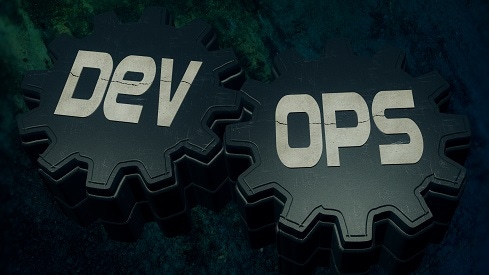Why Scaling DevOps Is a People Problem
You can have the latest and greatest automation toolset, but without people transformation, DevOps at scale will remain a mirage for many.

Doing DevOps and delivering it at scale are two different things. DevOps is the combination of culture, practices, and tools that increases an organization's ability to deliver software and services at a high velocity. But after initial success with DevOps projects, many organizations struggle to find a roadmap for how to expand DevOps.
To provide perspective on the magnitude of the problem, Gartner states that through 2022, a staggering 75% of DevOps initiatives will fail to meet expectations fully. Unless organizations crack the cultural transformation required for DevOps, it will remain an elusive goal for many organizations. So, what should organizations do? Here are five steps to set your teams up for success as you scale DevOps.
1. Achieve consensus on the speed of release.
The key to success and building a culture that will support DevOps at scale is establishing goals at the outset. This requires reaching agreement between the IT team's desire to continually release software as quickly as possible and the business's preference for incremental change, with the goal of minimizing customer friction that frequently results from the constant software updates. This is the core conflict to resolve to fuel the expansion of DevOps. It requires cross-functional teams connecting physically or virtually to reach alignment rather than on collaboration tools like Slack. It’s a time consuming and essential step that will determine if you will be successful. If you cannot achieve this consensus it's almost impossible to scale DevOps. As such, it’s critical that you not skip this step.
2. Have realistic expectations for the pace of change.
DevOps requires a cultural transformation, and as you scale, this applies to more and more of your organization. Changing the dynamics of how operations and development teams interact is the key. The methodology itself doesn't change and buying the latest Puppet tool will not accelerate DevOps adoption. Developers need to work with the business and follow the mantra that they must collaborate rather than dictate. Achieving this takes time, however, and that's when organizations tend to stumble as they encounter resistance and many efforts to scale stall.
Don't underestimate the time it takes to achieve cultural change. People are not machines and it’s a process to adjust and learn new ways of collaborating and interacting. To help facilitate the cultural shift, leadership should look to reward and recognize teams, rather than individuals, that are embracing the transformation. Leadership needs to be mindful that cultural change is a continuous, evolving process with no end in sight and that you must keep nurturing it.
3. Implement a system to facilitate feedback.
Improving communication helps break down silos between teams. Evaluate and see what tools and processes are needed to help with this. For example, organizations can implement a feedback loop to enable the business to focus on developing quality products that delight customers. This helps remove silos between teams and unifies everyone on a common goal such as customer satisfaction. Some businesses have taken this a step further by linking team bonuses to business metrics. This type of initiative helps accelerate the integration of disparate teams into a productive group.
4. Expect to encounter setbacks.
Don’t be derailed by the inevitable pitfalls. Cultural change is not a linear process, and as you scale DevOps you will face multiple setbacks. Don’t give up at the first challenge you encounter. Try to learn from the setbacks and avoid repeating them. Make sure to keep communicating with the team so everyone can work together to find a solution to prevent the problem reoccurring.
5. Embrace the diversity of skills.
As you scale, you need to recognize and embrace the unique talents of each team member. To be successful requires a diverse group of skilled people working in lockstep towards a common goal. As a leader, you need to play to your team’s strength, so don't try and force-fit people into roles for which they are not equipped to be successful.
Blurring the boundaries between teams is the foundation for scaling DevOps. You need to approach it like a people transformation project rather than a technology implementation. IT leadership must shift its focus from technology to the softer people-related issues. This requires everyone moving out of their comfort zone to create a culture that fuels the expansion of DevOps.
You can have the latest and greatest automation toolset, but without the people transformation, DevOps at scale will remain a mirage for many. Following the five steps outlined above can help organizations implement a structure that will allow DevOps to thrive rather than fail at scale.
For more information, read InformationWeek's Practical Guide to DevOps.

Antony Edwards is COO of Eggplant. Edwards is a proven product and technology leader with extensive experience in enterprise software and mobile computing. Before Eggplant, he served as CTO of The Global Draw Group. Prior to that, he was the executive vice-president of ecosystem and technical services at mobile operating system specialist Symbian. While at Symbian, Edwards was a founder of the Symbian open-source foundation.
About the Author(s)
You May Also Like





